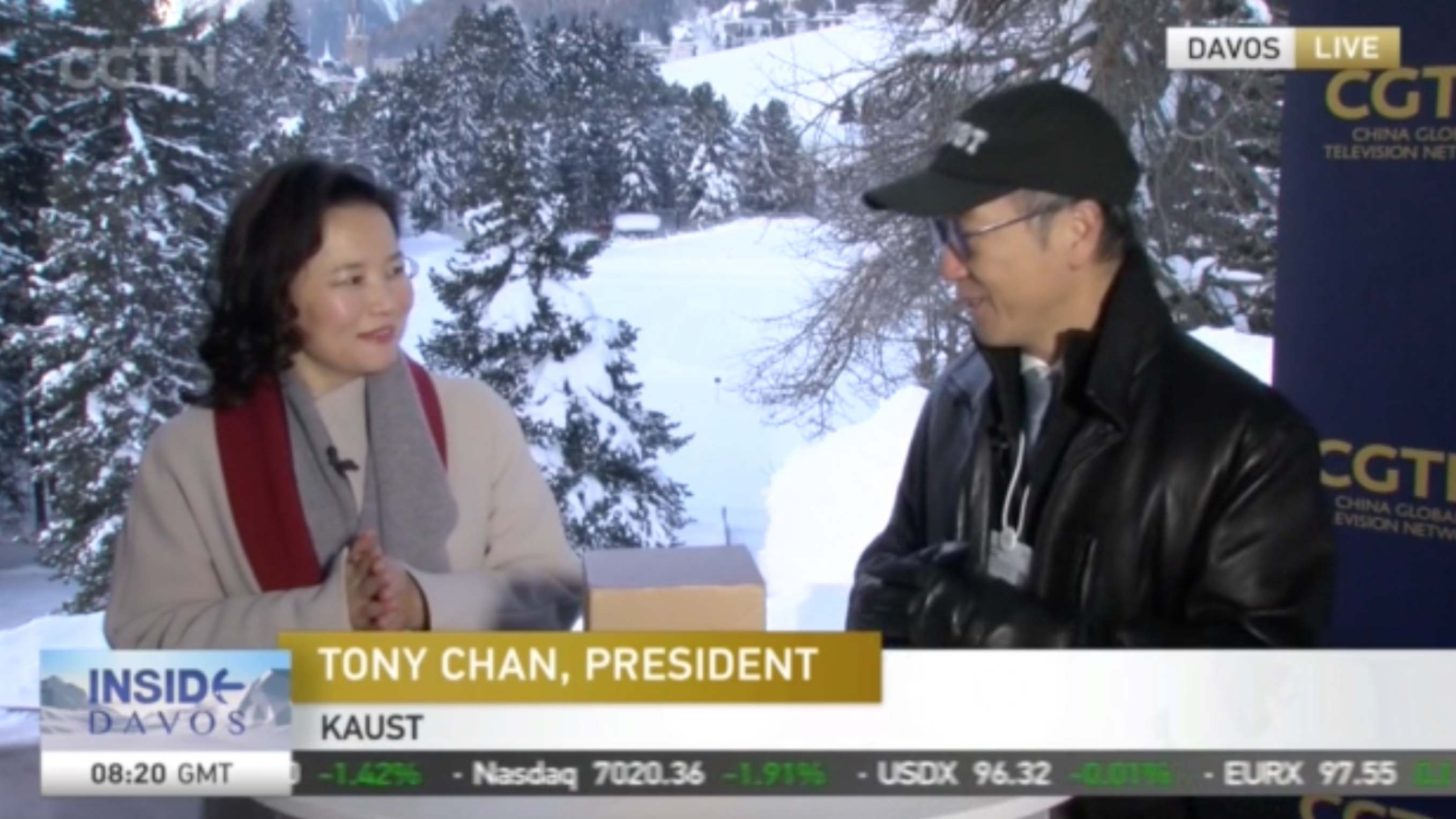
Money Stories
10:59, 24-Jan-2019
Tech-driven agriculture on spotlight at Davos
CGTN Global business
04:55

When leaders from a cross-section of industries around the world gather in Davos, agriculture, one of the most ancient human endeavors, continues to attract fresh attention, especially when modern technology is helping it evolve in a way that has never happened before.
Saudi Arabia is trying to diversify its oil-dependent economy by encouraging institutions to focus on other potential areas of growth with an emphasis on science and technology.
King Abdullah University of Science & Technology (KAUST), which is leading the kingdom's effort, carries out researches across different fields, including energy, water, food and environment, and some of them are in line with the UN sustainable development goals.
One of its attempts in agriculture is growing tomatoes with sea water.
“The country is sort of pivoting to a new world by using innovation and technology... In a way, it puts college in a good position, because we are for the future, we want to increase the capacity in technology and human capital,” said Dr. Tony Chan, the president of KAUST, and a former president of Hong Kong University of Science and Technology.

Tony Chan, the president of KAUST, speaks with CGTN in Davos. /CGTN Photo
Tony Chan, the president of KAUST, speaks with CGTN in Davos. /CGTN Photo
“Innovative technology itself is not necessarily political and it will benefit the world, so I hope wise people will continue to support science and technology,” he added.
In addition to experiments in universities, tech-focused innovation has moved from the laboratory to the real business.
Syngenta, one of the world's largest agricultural companies, has been dedicating to technology development and application.
“Technology can do so much to the world. More nutritious food, higher quality and much less impact on the environment. 30 percent of greenhouse gas emission comes from the agriculture food chain. We can reduce that dramatically and we can reduce the land needed for agriculture,” said Erik Fyrwald, CEO of Syngenta.
04:46

The company has been putting efforts into agriculture research by using cutting-edge technologies, such as gene-editing.
“It requires education for people to understand gene-editing technology and to accept genetically modified organism (GMO). With GMO, you take a gene from another organism and put them into a plant, you know what exactly this gene does, you can test it and you can ensure it's safe for people. Only by modifying slightly the gene in the plant to make it perform better," said Fyrwald.
Fyrwald also remains confident despite the trade dispute between China and the U.S., noting that science and technology can always be a driver for economy and innovation and for international collaboration.
Chinese state-owned chemical giant ChemChina acquired the Swiss agribusiness giant in 2017, remaking the international market for agricultural chemicals, seeds, and fertilizers.

SITEMAP
Copyright © 2018 CGTN. Beijing ICP prepared NO.16065310-3
Copyright © 2018 CGTN. Beijing ICP prepared NO.16065310-3